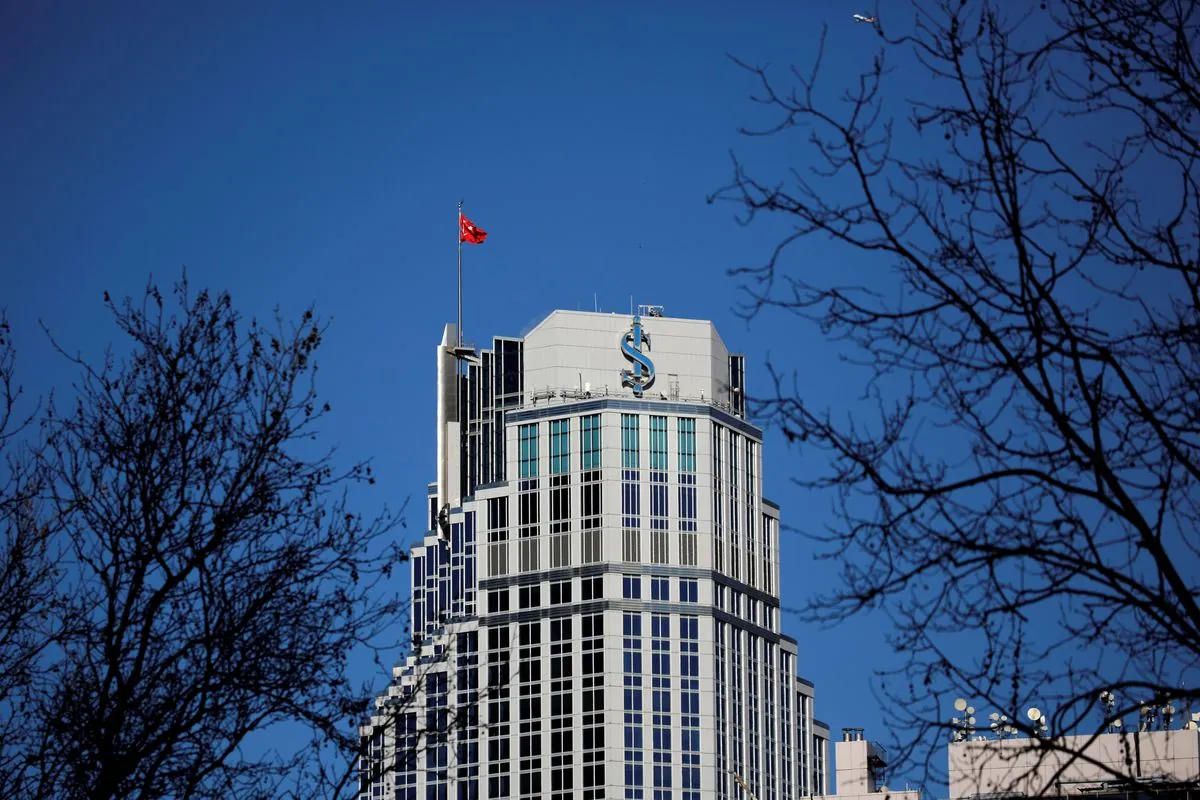Hakan Aran, CEO of Isbank, Turkey's largest private bank by assets, recently shared insights on the institution's expansion plans and the country's economic outlook. In an interview at Isbank's Istanbul headquarters, Aran outlined the challenges facing Turkish banks and the lender's strategy for growth in the coming years.
Founded in 1924 to support industrial development and household savings, Isbank has grown to a market value of nearly $10 billion. As the bank marks its centenary, it faces a complex economic landscape in Turkey, with high inflation and interest rates impacting the financial sector.
Aran, who has been at the helm since 2021, predicts that Turkish banks will continue to face difficulties throughout 2025 as the country battles inflation. He stated, "We all will continue to pay the price for the sake of ensuring price stability and lowering inflation." The CEO anticipates a deterioration in net interest margins this year and a decline in asset quality next year.
The Turkish central bank has raised its policy rate to 50% from 8.5% since June 2023, reversing years of unorthodox monetary policies. This tightening has put pressure on bank balance sheets, with Aran noting that many banks would likely report losses if required to use inflation-adjusted accounting methods.
Despite these challenges, Isbank is pursuing an ambitious growth strategy. Aran outlined plans to expand the bank's footprint in payment system infrastructure, digital platforms, and service banking. The lender is evaluating potential acquisitions and partnerships abroad, particularly in the United Kingdom and European Union.
"Currently, 90% of income comes from traditional banking and 10% from such new platforms. We are taking steps to bring this ratio closer to each other in the next five years."
Isbank aims to position itself as a regional fintech hub, bolstered by the recent merger of its subsidiary Moka Payment Institution with Birlesik Odeme Hizmetleri. The bank's goal is to be among the top global banks in terms of geographical reach and client base.
Looking ahead, Aran predicts that the central bank will begin easing monetary policy in November 2024 with a 250 basis-point cut. He expects the policy rate to fall to 45% by the end of 2024 and to 25% by the end of 2025. Inflation is projected to decrease to about 42% by the end of 2024 and to 20% a year later, slightly higher than official forecasts.
The CEO also addressed currency concerns, predicting that the Turkish lira will weaken to 38 against the dollar by the end of 2024. This comes as the lira recently touched 34 to the dollar for the first time in August 2024.
As Isbank navigates these economic challenges, its focus on digital innovation and international expansion reflects a broader trend in the banking sector. The institution's strategy to balance traditional banking with new digital platforms over the next five years demonstrates its adaptability in a rapidly evolving financial landscape.
